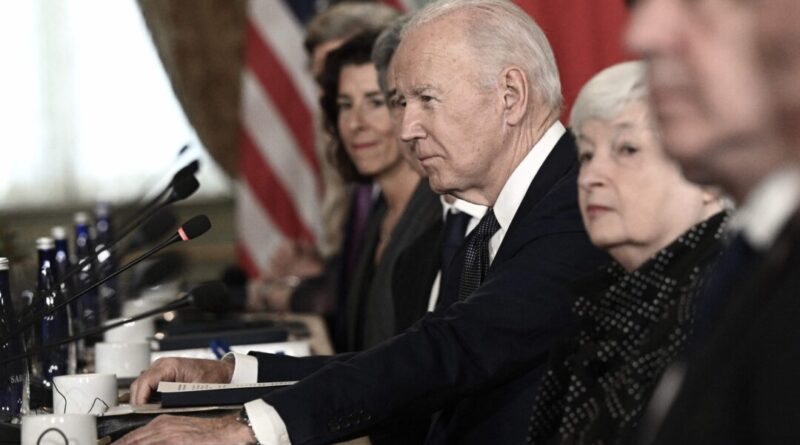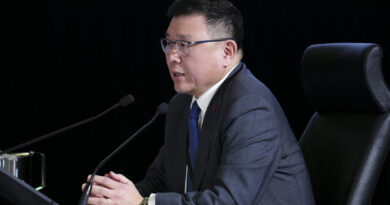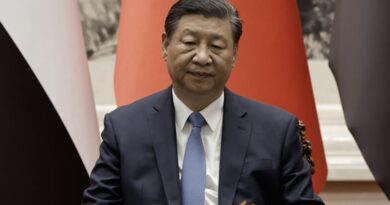US Unlikely to Take Chinese Leader Xi’s ‘Red Line’ Warning in Last Biden Meeting Seriously, Say Experts
‘There is now a broad, bipartisan understanding that we are dealing with an untrustworthy regime,’ an expert said.
In his recent in-person meeting with outgoing U.S. President Joe Biden, Chinese Communist Party (CCP) leader Xi Jinping laid out four topics that he deemed off-limits for the incoming administration, which experts say the United States is unlikely to heed.
The meeting took place on the sidelines of the Asia-Pacific Economic Forum summit in Peru on Nov. 16, wherein Xi said there are four “red lines” that the CCP is warning the United States not to cross, according to Chinese state media.
Rather than resisting sanctions and tariffs, the CCP leader said these “red lines” are Taiwan, democracy and human rights, “China’s path and system,” and “development rights,” additionally warning the United States to stay out of conflicts in the South China Sea, where Beijing has made broad territorial claims that run counter to international law.
Mary Kissel, executive vice president and senior policy adviser at financial services company Stephens Inc., told The Epoch Times that one should not put much stock in the CCP’s words.
“It’s propaganda,” she said. Instead, she expects the incoming administration to judge and respond to the Chinese regime’s actions.
Kissel served in the first Trump administration as senior adviser to then-U.S. Secretary of State Mike Pompeo and was involved in resetting Washington’s China policy, which she said arose in response to the CCP’s rule-breaking.
When the administration saw the CCP running broad operations on U.S. soil, including corrupting U.S.-based institutions and committing intellectual property theft, the response was to demand fairness as the United States would from any other country, she said, and the Biden administration continued that approach.
Kissel noted that the United States has made an effort to reach out through proper channels before responding to the CCP’s violations with measures such as sanctions and tariffs. Over the past two administrations, she said, the U.S. position has been one of fairness rather than aggression.
“I expect a continuation of that framework of what we set out,” Kissel said. “There is now a broad, bipartisan understanding that we are dealing with an untrustworthy regime.”
Jacqueline Deal, senior fellow with the Foreign Policy Research Institute, told The Epoch Times that the extent of the CCP-backed hacking is enough to warrant a federal state of emergency.
“This would help prepare the American people for the disruption that is likely coming—whether or not the United States retaliates,” she said. “It would also help to secure public support for a U.S. response designed to try to reestablish deterrence.”
The Trump administration has a track record of not falling for the CCP’s narrative, Chin said, pointing to the administration’s pursuit of fair trade and adherence to international laws, as Kissel did.
Chin added that Trump is unlikely to care about any “red lines,” as he broke precedent almost immediately after his 2016 victory when he accepted a congratulatory call from then-Taiwanese President Tsai Ing-wen.
Multiple Trump picks for his new administration have not only demanded fairness in China’s dealings with the United States but also condemned the CCP’s human rights abuses.
The CCP has long prevented discussions over human rights, Taiwan, and democracy in dealings with international counterparts. Internal documents and whistleblowers revealed decades ago that the regime considers these topics “poisonous” to the Party’s rule because Taiwan’s independence, the pro-democracy movement, and human rights for Tibetans, the Uyghur ethnic minority in Xinjiang, and Falun Gong practitioners all present an alternative vision of China to the communist one.





